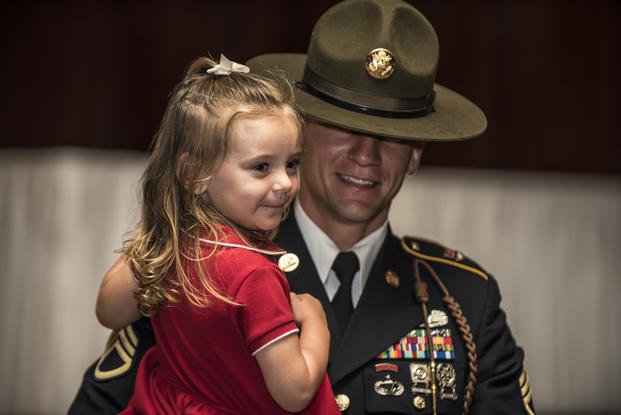It never fails to break our hearts. Everything seems to be going swimmingly and then one of our children says something so simple and devastating that our whole world just stops.
"You should write a book about how daddies just come and go and come and go," my 6-year-old daughter told me the other day.
She was flipping through the children's relocation book I recently wrote for Eglin Air Force Base and wanted to know what book I planned to write next.
"What do you mean, 'Daddies come and go?' " I asked. I dreaded what I expected she was about to say.
"You know, how they leave, but then they come back, and then they leave again," she said, as breezily as if she was listing off her favorite colors. "So kids will know that when daddies leave, they always come back," she finished.
My heart sunk. Devastation complete.
After deciding on the spot that we would spend more time reading the many children's books about deployment that we already have, I also began to wonder what I should be telling her about this life we live.
To her, it is completely normal. She's never known a life that didn't include her dad being gone regularly for long stretches of time, and she's never lived anywhere where there weren't lots of kids with a parent deployed. And that's a good thing. I certainly don't want her growing up feeling sorry for herself or resentful.
But it got me thinking about that word -- normal.
I realized that to my mind a normal childhood is an ideal childhood. Two parents, at least two kids, both parents working regular hours, that sort of "Leave It to Beaver" kind of life -- and how many kids get that?
I didn't. I grew up with divorced parents and a dad who lived out of state. I saw him every other weekend and on holidays, and rarely more than that.
The more I considered the families of people I know well and love, the more I realized that very few had that sort of ideal family life.
I still have all the Christmas cards I received this year stacked up on my desk, because I keep meaning to go over my own mailing list to make sure it's up-to-date. I began to flip through the cards I received, looking at the pictures.
I didn't dwell long on the military families because their realities are so much like my own family's life. But even as I considered the families of my civilian friends and relatives, I realized that very few looked like my definition of "normal."
Divorces.
Blended families.
Grandparents raising children.
Only children.
One parent deceased.
And lots of Must-Have scenarios because of one parent's demanding job.
Even in families where both parents lived together with the children, I realized that abnormal was actually the norm.
Same-sex parents.
Foster kids.
Adopted children from different racial backgrounds than the parents.
Parents from different racial or religious backgrounds.
A family member with a handicap or serious illness.
I paused on photos of the handful of families who didn't have anything obviously unusual or extraordinary going on. These were the families where the parents are of the opposite sex and married, and everyone is healthy and looks the same. These are families where parents both work normal hours and were raised in --more or less -- the same ethnic and religious background.
But even with many of these families, I recalled some abnormalities, though not obvious in their pictures. Some have struggled with financial problems or unemployment. Some I knew were only just barely married, struggling to hold a relationship together. Some were exhausted by caring for an older family member, or a child with a history of drug abuse. One family had chosen to move to a third world country to work as missionaries.
These were all things that would necessitate a conversation with the children to explain why they weren't normal, I realized.
That is, if the kids ever bothered to ask.
I thought some more about my daughter. She has never asked me why her dad goes away, because she's not comparing us to anyone.
We are normal. Her normal. No explanation needed.





















